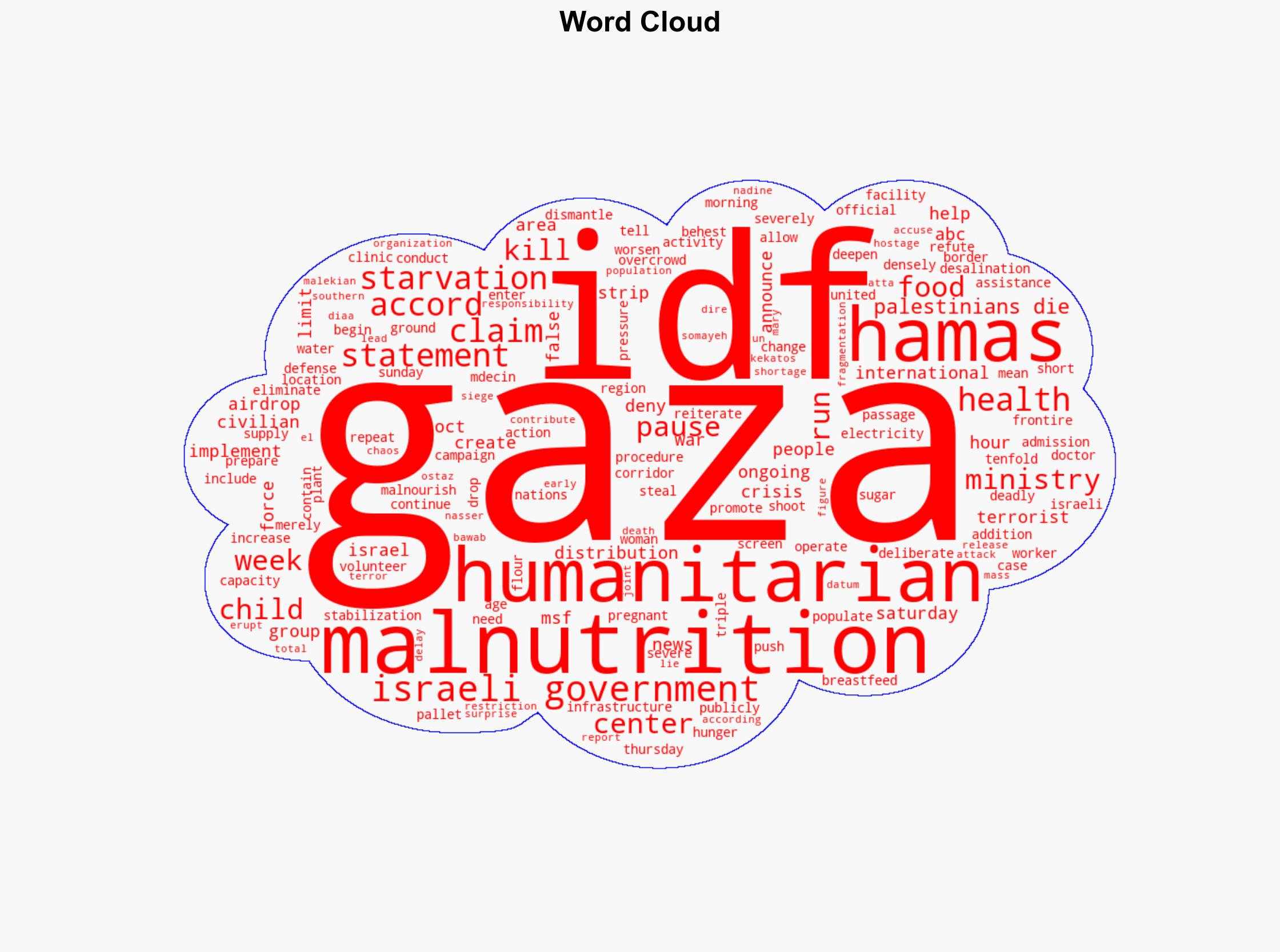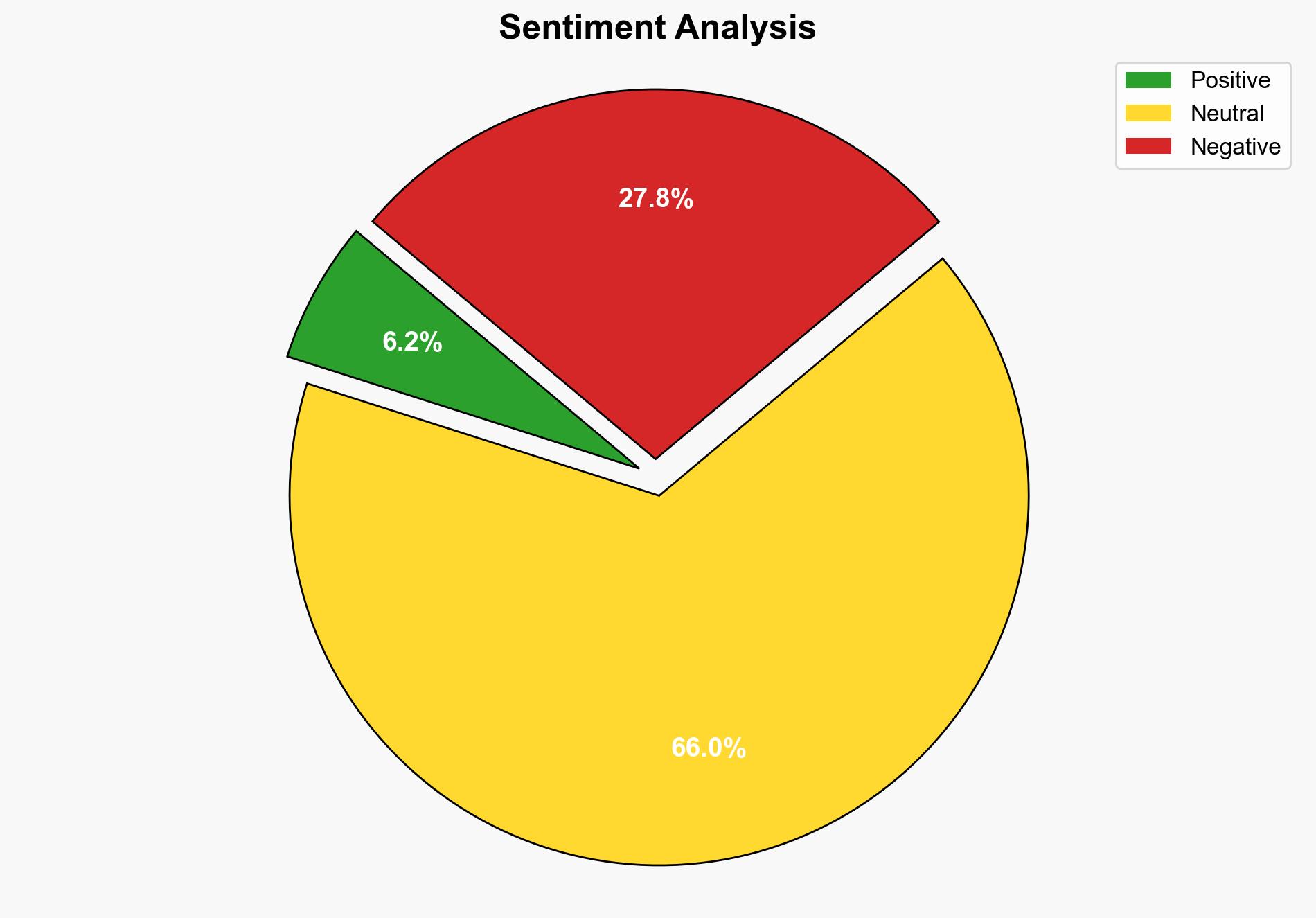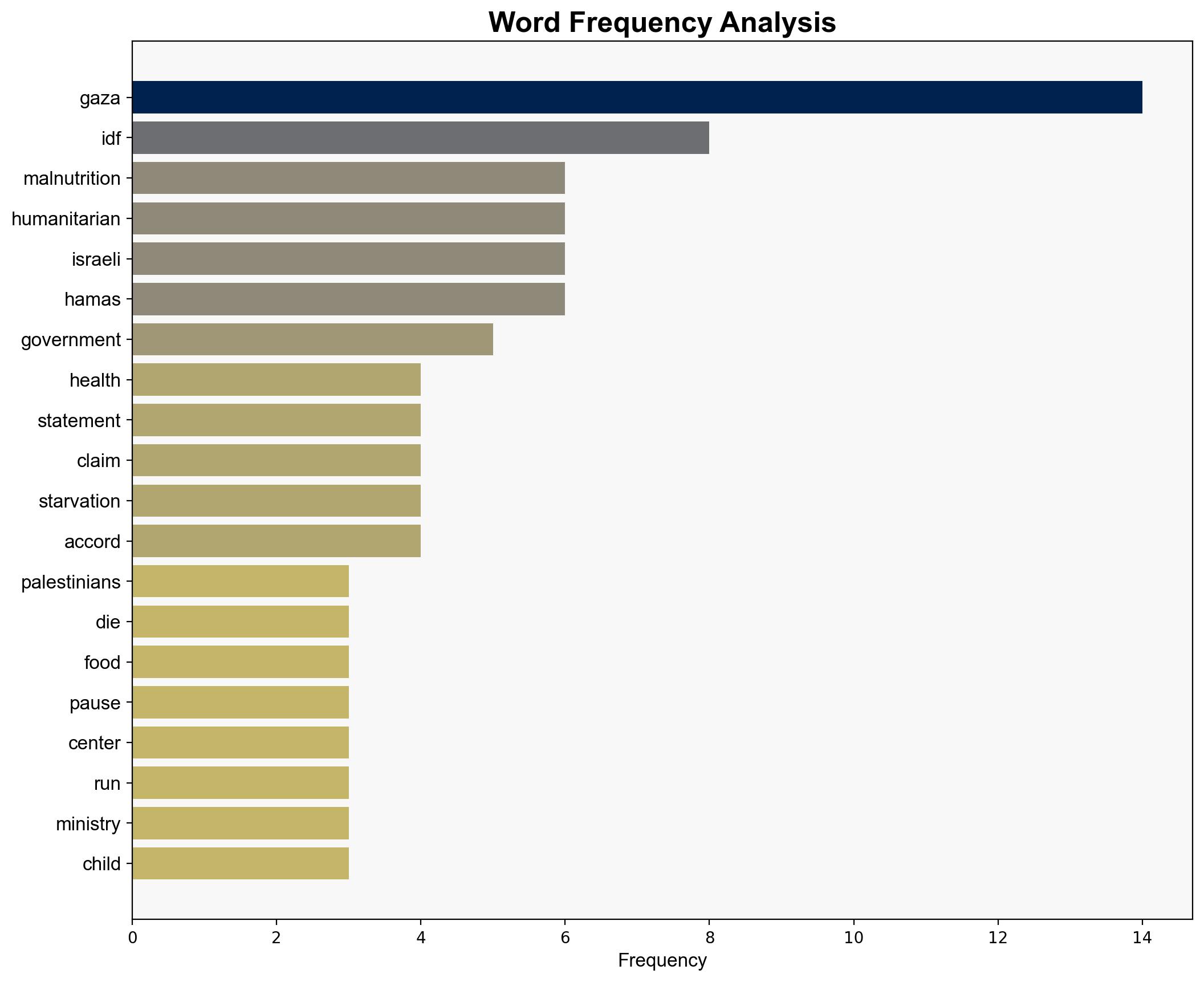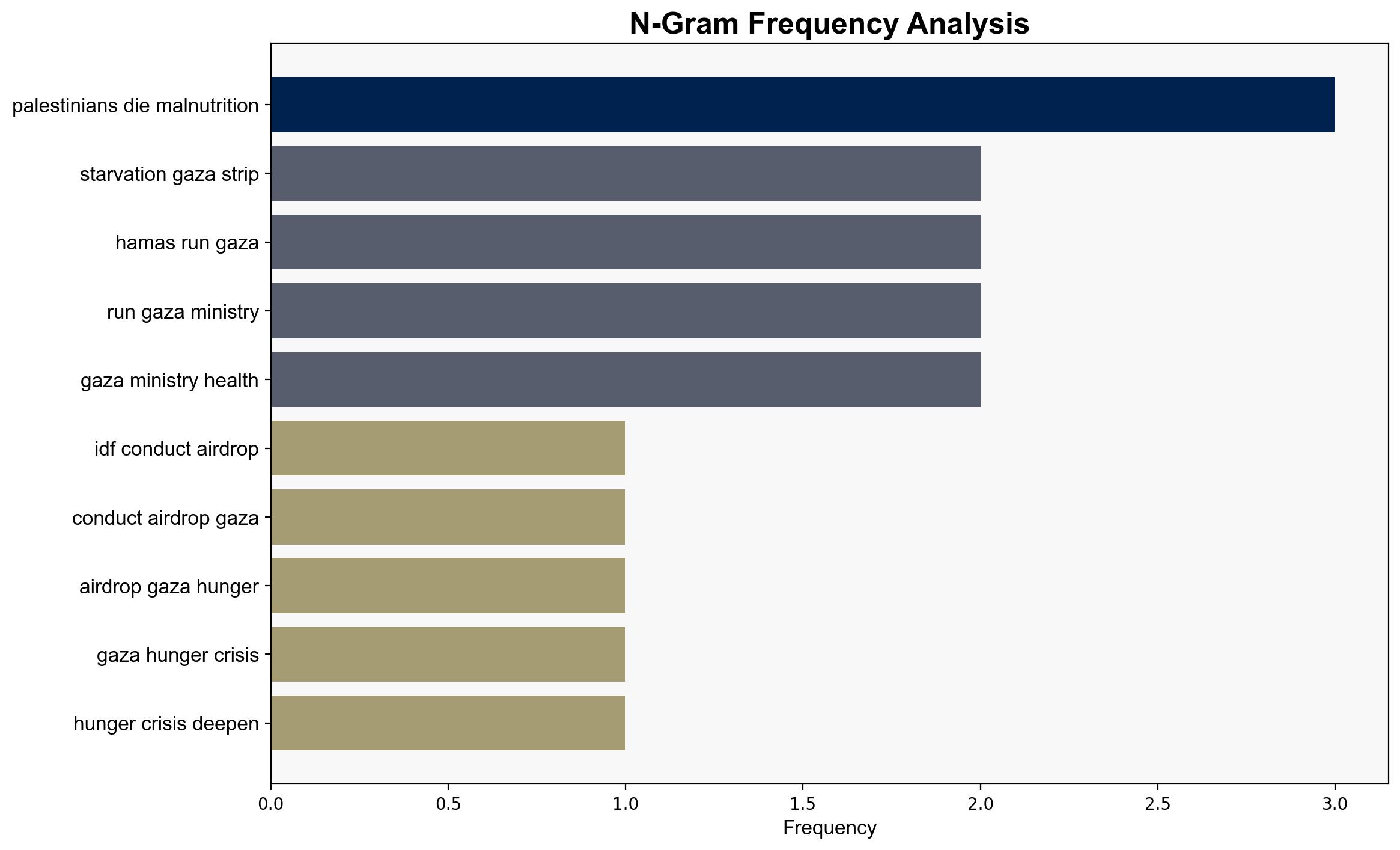IDF says it will conduct aid airdrops in Gaza as hunger crisis deepens – ABC News
Published on: 2025-07-26
Intelligence Report: IDF says it will conduct aid airdrops in Gaza as hunger crisis deepens – ABC News
1. BLUF (Bottom Line Up Front)
The most supported hypothesis is that the IDF’s announcement of aid airdrops and humanitarian pauses is a strategic response to international pressure and a worsening humanitarian crisis, rather than a genuine shift in policy. Confidence level: Moderate. Recommended action: Monitor the implementation and impact of these measures, while engaging in diplomatic efforts to ensure sustained humanitarian access.
2. Competing Hypotheses
1. **Hypothesis A**: The IDF’s announcement of aid airdrops and humanitarian pauses is a genuine effort to alleviate the humanitarian crisis in Gaza, driven by a recognition of the severity of malnutrition and international pressure.
2. **Hypothesis B**: The IDF’s actions are primarily a strategic move to mitigate international criticism and maintain control over the narrative, rather than a substantive change in policy towards humanitarian relief.
Using ACH 2.0, Hypothesis B is better supported due to the IDF’s concurrent statements denying responsibility for the crisis and attributing blame to Hamas, suggesting a focus on narrative control.
3. Key Assumptions and Red Flags
– **Assumptions**:
– Hypothesis A assumes the IDF has the logistical capability and intent to effectively deliver aid.
– Hypothesis B assumes that international pressure is a significant motivator for the IDF’s actions.
– **Red Flags**:
– The IDF’s denial of responsibility and attribution of blame to Hamas may indicate a focus on narrative management.
– The lack of independent verification of aid delivery effectiveness.
4. Implications and Strategic Risks
– **Implications**:
– If aid is effectively delivered, it could alleviate immediate humanitarian needs and reduce international criticism.
– Failure to deliver aid effectively may exacerbate the crisis and increase tensions.
– **Strategic Risks**:
– Potential for increased regional instability if humanitarian needs are not met.
– Risk of escalation if aid efforts are perceived as insufficient or insincere.
5. Recommendations and Outlook
- Engage with international partners to ensure independent monitoring of aid delivery.
- Encourage diplomatic dialogue to facilitate sustained humanitarian access.
- Scenario Projections:
– **Best Case**: Effective aid delivery leads to improved humanitarian conditions and reduced tensions.
– **Worst Case**: Aid efforts fail, leading to increased humanitarian suffering and regional instability.
– **Most Likely**: Partial success in aid delivery, with ongoing international scrutiny and pressure.
6. Key Individuals and Entities
– IDF (Israeli Defense Forces)
– Hamas
– Médecins Sans Frontières (MSF)
– United Nations
7. Thematic Tags
national security threats, humanitarian crisis, regional focus, international relations





